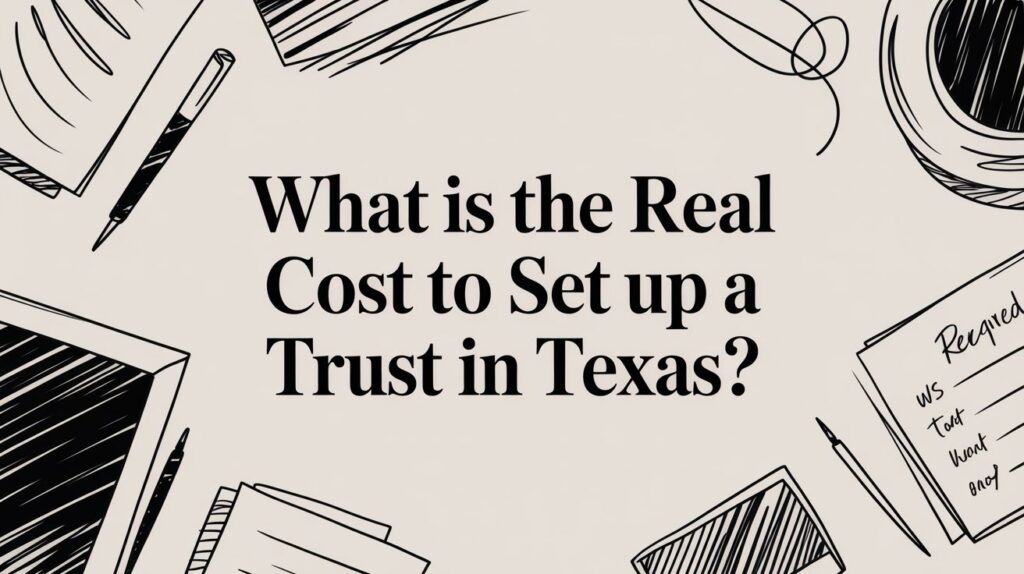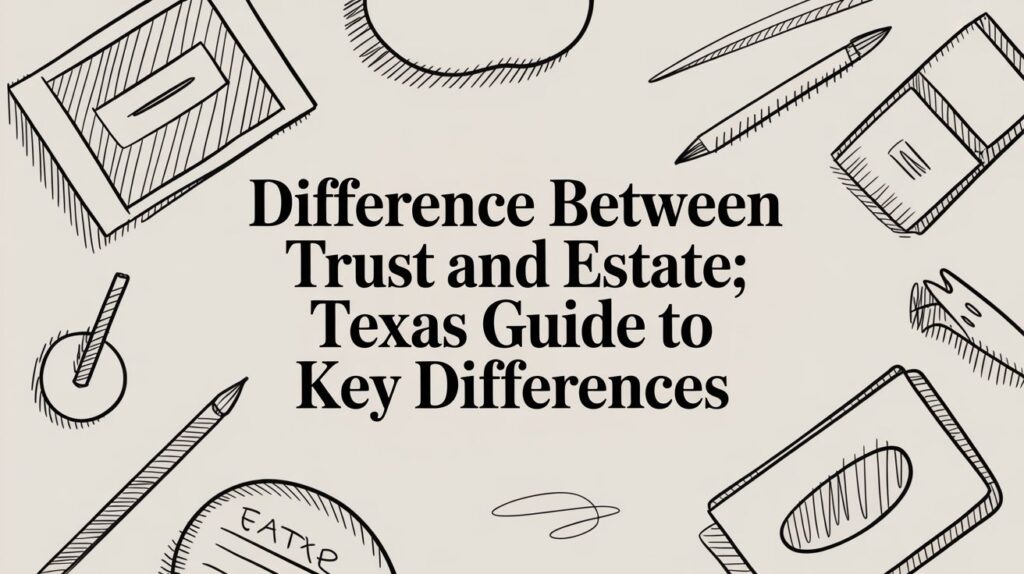When it comes to estate planning, one of the biggest decisions you’ll face is choosing between a trust or will. It’s a choice that might seem dry or overly technical, but it’s anything but. The path you choose can affect everything from how long your loved ones wait to inherit, to how much your estate pays in taxes, to whether your personal business ends up in a public courtroom. So when people ask, “Trust vs. Will: Which option benefits you most?”—they’re asking a question that’s deeply personal, highly practical, and definitely worth answering thoroughly.
In this article, we’ll walk you through the differences, the advantages, the drawbacks, and the hidden surprises that come with each route. We’ll also bring in real-life scenarios, so you’re not just digesting legal jargon—you’re seeing how this decision plays out in actual families. If you’re in the midst of choosing between trust or will, this comprehensive guide was built for you.

Understanding the Basics: What Is a Will?
A Simple Yet Powerful Document
Let’s start with the basics. A will, officially known as a “last will and testament,” is a legal document that tells the court what should happen to your property when you die. It also allows you to:
- Name an executor (the person who carries out your wishes)
- Appoint guardians for your minor children
- Designate specific gifts for individuals or charities
- State how you want your property distributed
But—and this is important—a will has no legal power until after your death and must go through probate, the court process where a judge validates your will and oversees the distribution of your estate.
If you’re thinking about choosing between trust or will, it’s vital to know that a will doesn’t help you avoid probate—and probate can take months, or even years, depending on the complexity of your estate.
What Is a Trust? Key Features and Benefits Explained
More Than Just a Document—It’s a Legal Entity
Unlike a will, a trust takes effect as soon as it’s created. It allows you (the grantor) to transfer assets to a legal entity that holds them for the benefit of your beneficiaries. A trustee manages those assets based on instructions you’ve laid out.
Here’s what a trust can do:
- Avoid probate
- Maintain privacy
- Distribute assets over time instead of all at once
- Protect minor or special-needs beneficiaries
- Minimize estate taxes (in some cases)
When evaluating trust vs. will: which option benefits you most?, consider that trusts offer more flexibility and control—especially if your estate is large or complicated.
Real-Life Story: The Tale of Two Brothers
Let’s look at a real-life example. Imagine two brothers—Jake and Matt.
Jake had a will. When he passed away, his estate went into probate. It took nearly a year before his children received their inheritance. During that time, the court-appointed executor charged $10,000 in fees, and everything filed during the process became public record.
Matt had created a living trust instead. When he died, his assets were transferred immediately to his beneficiaries, without court involvement. His family had access to the funds within weeks. Everything remained private.
So if you’re wondering trust vs. will: which option benefits you most?, stories like this one show that the answer depends largely on your personal goals—and your tolerance for red tape.
The Pros and Cons of Wills
Why Wills Still Make Sense for Some People
Pros of a Will:
- Simplicity – Easy and inexpensive to create
- Guardianship Appointments – Crucial for parents of minor children
- Clear Directions – Prevents family arguments over who gets what
- Good for Smaller Estates – If you don’t own a lot of property, a will may be sufficient
Cons of a Will:
- Probate is required – This can take months or years
- Public record – Anyone can see what’s in your will
- Limited control – Cannot manage how or when beneficiaries receive assets
- Ineffective for incapacity – Wills only take effect after death

If you don’t mind court oversight and your estate is relatively small, a will might be the right fit. But if you’re looking for privacy and flexibility, the answer to trust vs. will: which option benefits you most? might tilt in favor of a trust.
The Pros and Cons of Trusts
When Flexibility and Privacy Matter
Pros of a Trust:
- Avoids probate – Saves time and often money
- Private – Trusts are not public documents
- Control – You can stagger distributions, protect minors, or shield assets
- Covers incapacity – If you become incapacitated, your trustee can manage your affairs without court involvement
Cons of a Trust:
- More expensive to set up – Legal fees can range from $1,000 to $3,000+
- Ongoing maintenance – You must actively fund the trust
- No guardianship designations – Unlike wills, trusts don’t appoint guardians
In the trust vs. will conversation, trusts often appeal to those with more complex estates or people who want to avoid a public court process.
When You Might Need Both a Trust and a Will
Why One Might Not Be Enough
In many cases, the most effective estate plans include both a trust and a will. Why? Because each tool covers different aspects of your life.
You might use:
- A revocable living trust to manage and transfer major assets
- A pour-over will to ensure anything not in your trust still gets distributed properly
- A standard will to name guardians for minor children
Example: Sarah, a single mom with a trust, realized she hadn’t included her recently purchased car in it. Her pour-over will ensured that the car would “pour over” into the trust at her death, without creating unnecessary probate headaches.
So, when considering choosing between trust or will, know that the smartest choice may be both.
:max_bytes(150000):strip_icc()/living-trust-68520a8be0eb4438a99c95ff1483a19a.jpg)
Cost Comparison: Wills vs. Trusts
It’s Not Just About What You Spend—It’s What You Save
Creating a will is generally less expensive upfront, often costing between $150 and $600. But probate can cost thousands in court fees, executor commissions, and attorney charges—often 2% to 7% of your estate.
Setting up a trust costs more upfront—usually $1,000 to $3,000+—but it often saves money in the long run by avoiding probate and reducing estate taxes.
So, trust vs. will: which option benefits you most? financially depends on whether you prefer to invest now and save later—or pay less now and risk higher fees down the line.
How Probate Really Works in Texas
The Court Process Behind Wills
If you die with only a will, your estate must go through probate. In Texas, this includes:
- Filing the will with the county court
- Appointing an executor (if not already named)
- Notifying creditors and beneficiaries
- Inventorying assets
- Paying debts and taxes
- Distributing remaining assets
The whole process can take six months to two years, depending on the estate’s complexity and whether anyone contests the will. Add in potential family conflict, and you’ll start to understand why many people prefer to avoid probate altogether with a trust.
Privacy Concerns: Keeping Your Affairs Confidential
What the Public Doesn’t Need to Know
Wills filed inprobate court become public records. That means:
- Anyone can see what’s in your will
- The value of your assets may become public
- Personal family matters could be exposed
Trusts, by contrast, remain private documents. They’re not filed in court, and their contents aren’t open to public scrutiny. If maintaining confidentiality matters to you, that’s a strong argument in favor of a trust when considering trust vs. will: which option benefits you most?
Asset Protection: Safeguarding What You’ve Built
How Trusts Shield Your Property
While a will distributes assets outright, a trust can offer long-term asset protection. For example, you can:
- Set up spendthrift clauses to protect against irresponsible heirs
- Shield assets from creditors or lawsuits (in certain irrevocable trusts)
- Preserve wealth for future generations
:max_bytes(150000):strip_icc()/GuidetoWealthPreservation-midstoryimage-final-483daf28d91745e390e95ad066c4c96f.png)
If one of your goals is to protect your assets from being squandered or claimed, then the trust is the clear winner.
Real-Life Case: Avoiding Probate Pitfalls
Melissa, a successful entrepreneur in Houston, had two children and a sizable investment portfolio. She assumed her simple will would suffice. When she died unexpectedly, her estate entered probate.
Disputes erupted between her children and her business partners. Theprobate process dragged on for over 18 months, during which time her business suffered. Legal costs exceeded $30,000.
Had Melissa set up a trust, her assets could have transferred quickly and privately. Her children could’ve avoided the courtroom drama, and her business would have remained stable.
This story is a prime example of why choosing between trust or will isn’t just about paperwork—it’s about protecting the people and things you love.
Final Thoughts on Trust vs. Will: Which Option Benefits You Most?
Choosing between a trust or a will isn’t just a legal decision—it’s a personal one. It’s about control, privacy, cost, and peace of mind. If you want a simple and inexpensive plan and don’t mind probate, a will might serve you well. But if your goals include avoiding court, protecting your privacy, or managing how heirs receive their inheritance, a trust may be the better option.
In truth, many Texans benefit from a combination of both: a trust to handle major assets and avoid probate, and a will to cover everything else and name guardians for children. When it comes to trust vs. will: which option benefits you most?, the right answer depends on your family, your finances, and your goals.
Don’t leave it to chance. Talk to a qualified estate planning attorney who can tailor a strategy just for you—because planning for the future doesn’t just protect your assets. It protects your people.








